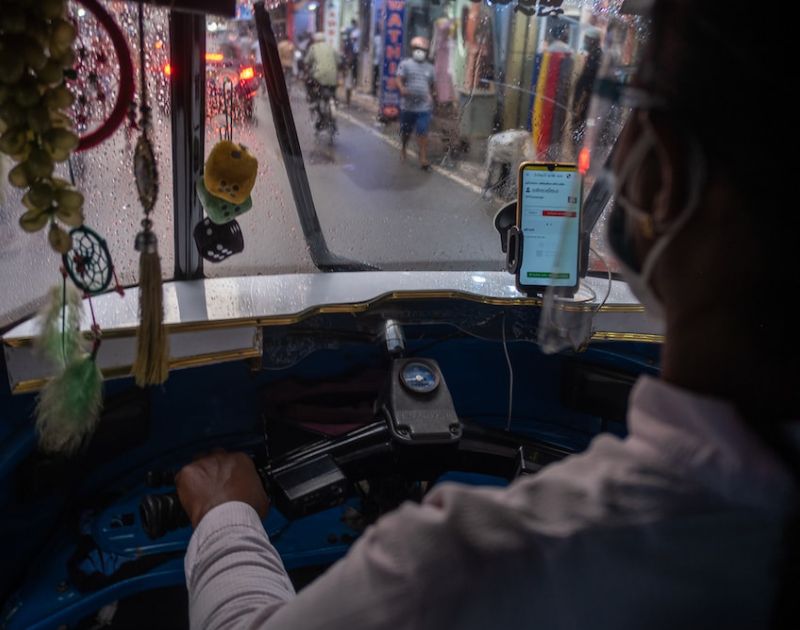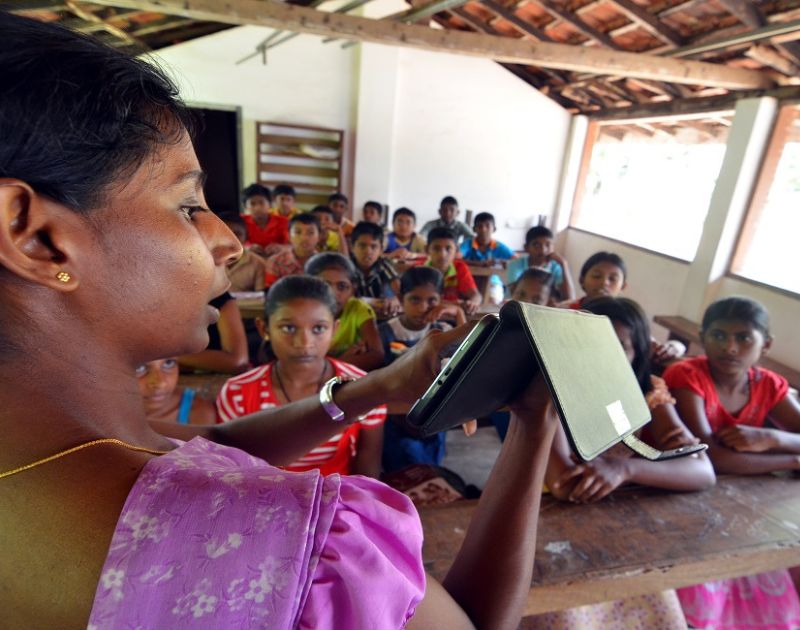
- Home
- Knowledge Insights
- Understanding Power Asymmetries in Platform-based Gig Work
‘I’ve always wanted to be my own boss’-gig workers in a recent gig worker survey conducted by CSF cited as a reason for joining the gig economy. A seemingly higher degree of independence, freedom and flexibility afforded by gig work has made it an attractive occupational choice alongside traditional work arrangements. This article takes a first look at unpacking the ideas of independence, freedom and flexibility in gig work, and will explore some of the power asymmetries that exist in the gig economy models found in Sri Lanka.
Historically, the balance of power in employment relationships has been cyclical. Some argue that the rise of trade unions and an emphasis on worker rights have tilted this balance in favour of employees. However, the same cannot be said of gig workers who work for platforms that – as some have argued – are deeply embedded in free-riding practices and mindsets. In the gig economy, many platform companies refuse to recognize workers as employees and strategically misclassify workers as ‘partners’, whereby they exercise greater control over the terms of exchange while workers are left with limited discretion on how they perform their duties. Although online freelancing platforms (‘cloud-based gig work’) may exert limited amounts of control over work, location-based gig work platforms are generally characterised by high levels of power asymmetry as workers have limited say on how much they get paid per trip/order, and which trips/orders are visible to them.
Asymmetric power relations in the workplace typically arise as a result of vulnerabilities to authoritarian, abusive or threatening treatment at the workplace, and a powerlessness to exercise legal rights. While multiple gig economy models have emerged over the years, all models commonly share one defining logic, which is that they seek to shift maximum risk and minimum reward onto workers. In the gig economy, processes like algorithmic management and digital surveillance erodes the reciprocity seen in traditional employment relationships and contributes to stronger power asymmetries between gig workers and the platform company. Möhlmann and Zalmanson (2017) conceptualise algorithmic management into five categories including; (a) digital surveillance (i.e., continuous monitoring of worker behaviour), (b) constant performance evaluation from requester reviews and job rejection rates, (c) automatic decisions without human intervention, (c) interaction with a system with no opportunities for feedback or negotiation and (e) low transparency, as companies rarely disclose the rules of an algorithm. These categories highlight the various mechanisms used by platform companies to control and influence their workers.
In the survey of gig workers conducted by CSF, it was revealed that there were a few workers who had been automatically deactivated via the platform for reasons including a failure to pay amounts due to the app. Deactivations via platform apps are based on platform algorithms and often fail to consider reasons beyond what takes place on the app. In other words, such algorithmic decisions don’t allow for workers to express their personal grievances-that could potentially halt such deactivation. In many instances, workers are not provided any justification for their deactivation, and the lack of human intervention in the deactivation process may overlook unfair decisions.
While the gig economy has created opportunities for many workers, it also poses threats in the form of inadequate employment protections or unfair work conditions. Today, many platforms laud the possibility of high earnings and flexibility that workers will receive by working on the platform, despite the fact that gig worker income is neither fixed nor that workers receive the full funds upon completion of orders/hires, due to the commission structures in place. Reduced bargaining power and excessive surveillance through algorithmic controls, undermine the freedom touted by platform companies and desired by their workers, and perpetuate the power asymmetry that exists between platform companies and their workers.
Another example of power imbalance that exists between gig workers and platforms is information asymmetry associated with terms and conditions that workers must consent to, at the start of the onboarding process. We found several instances where gig workers were unable to understand the terms and conditions they were required to agree to (on the platform’s app) in order to join the platform, due to language constraints. In some instances, the terms and conditions were only available in English and not in local languages of Sinhala and Tamil. Consequently, workers did not fully understand the extent to which the platform was collecting their user data and personal information.
Furthermore, the commission rates charged by platform companies as part of their business model, is generally determined unilaterally without the consultation of workers. There is a lack of transparency on how these commission rates are determined, and workers often have no say in how much commission the platform may charge. In depth interviews with workers revealed that some workers are not even fully aware of the commission rates charged by the platform company, and would merely credit the amount notified to them via the app in order to avoid deactivation. This too contributes to the power asymmetries that exist between gig workers and their platforms.
In contrast to traditional employment, the power structure in the gig economy is largely dominated by the platform companies that use different mechanisms rooted in algorithmic management of work that reinforce and heighten power asymmetries. Workers have little agency and find it difficult to contest unfair decisions or opaque behaviours by platform companies, given the few organisational resources at their disposal. In this context, platform companies must work towards improving overall transparency of their operations (i.e., particularly on algorithms), so that workers are made aware of how different aspects of their work (i.e.,ratings, incentives, commission rates etc.) are determined.
Nimaya Dahanayake is a Researcher as CSF. This article follows from a study conducted by Anushka Wijesinha (Co-founder/Director, CSF) and Nimaya Dahanayake for an international organization on the expansion of platform-based gig work in Sri Lanka. It was part of a sub-regional study including India and Bangladesh, and CSF led both the Sri Lanka report and the regional synthesis report. This is the third in a series of short articles that explore key findings, but go beyond and discuss critical themes emerging from this study. This work is part of CSF’s research workstream on ‘Inclusive Technology and Innovation’.
DISCLAIMER: Views expressed in this article do not reflect those of the organisations that CSF or its researchers have done work on this topic for.
Cover photo (c) Tashiya de Mel, from https://restofworld.org/2021/global-gig-workers-tuktuk-driver-srilanka/


